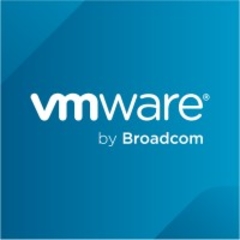What is our primary use case?
We primarily use the solution for consumers and publishers. It's for messaging and consumer publishing. That's it.
What is most valuable?
The solution is simple to use.
It's great for messaging and consumer publishing.
Companies can scale the solution, so long as they have server room.
The stability is good.
What needs improvement?
The user interface could be improved. We have an interface that shows the consumption rate, the number of consumers, their occupation rate. We should have a column in that interface that shows the estimated time until, at the current rate of consumption, the number of messages is to be consumed from a specific queue. That would be great. I wanted to read, however, as it is right now, JavaScript would have loaded the browser too much. Basically, I'd just like to see the consumption rate in each queue without too much fuss.
The solution could use some plugins that could be integrated into the server installation. We had a plugin that we used to delay something that from one version to the other was integrated into the server setup. Maybe it was more of an extension. However, more plugins could be also be integrated into newer versions of Rabbit.
For how long have I used the solution?
I've used the solution since 2013 or 2014. It's been about eight years at this point.
What do I think about the stability of the solution?
The solution is usually stable. We have problems with space on the Rabbit servers. When they are full, we might lose everything. That's a big no-no. This is a problem for Kafka as well, however, we have higher thresholds in that area. Rabbit is the poor brother to Kafka, so it receives less space. That's why, sometimes, in some departments, this problem occurs.
What do I think about the scalability of the solution?
The solution can scale, however, we use a lot of space for Kafka. We have clusters through the servers, and there may be more for each department. If some needs appear, we can increase the number of servers in a cluster to better manage messages. As long as your company can increase the number of servers, it can scale.
We have about 100 departments that use this solution in some way.
In our case, we have in our department five people and we have two clusters with Rabbit for two different directions. For us, it's enough. We do not plan to increase usage.
How are customer service and support?
I've never directly contacted technical support. We use recommendations on the site, which is very good. I appreciate the recommendations, however, I'm not sure about the maintenance of the documentation from one version of Rabbit to the other. The older versions of the documentation might be less accurate.
Which solution did I use previously and why did I switch?
Other departments might use, for example, Kafka, however, I'm unsure as I have no visibility on them.
How was the initial setup?
I was there when the solution was initially implemented and, from what I recall, it took half a year.
It was completely new. No one knew anything about it. However, we knew that we had to do something to improve the communication between departments. It was a good solution. That said, it took a long time before everyone understood how it works.
We had a few dedicated people who liked the idea of Rabbit and implemented it. It took a while for the rest of the company to get behind them and learn how to do it.
There are one or two people at any given time available to handle any type of maintenance responsibilities.
What about the implementation team?
We handled the implementation process ourselves.
What other advice do I have?
We're using a few different versions. It depends on the department. Some departments have the latest, some don't, some use a very old version. I'm using 3.8. We do have plans to make an upgrade.
It was a few years ago now when I learned this process of separating publishers versus consumers in terms of messages and communicating between departments. This was the biggest game changer for myself. I'd advise new users study that aspect and understand it.
I'd rate the solution at an eight out of ten. It's a very good tool and we use it all the time.
Which deployment model are you using for this solution?
On-premises
Disclosure: My company does not have a business relationship with this vendor other than being a customer.
















